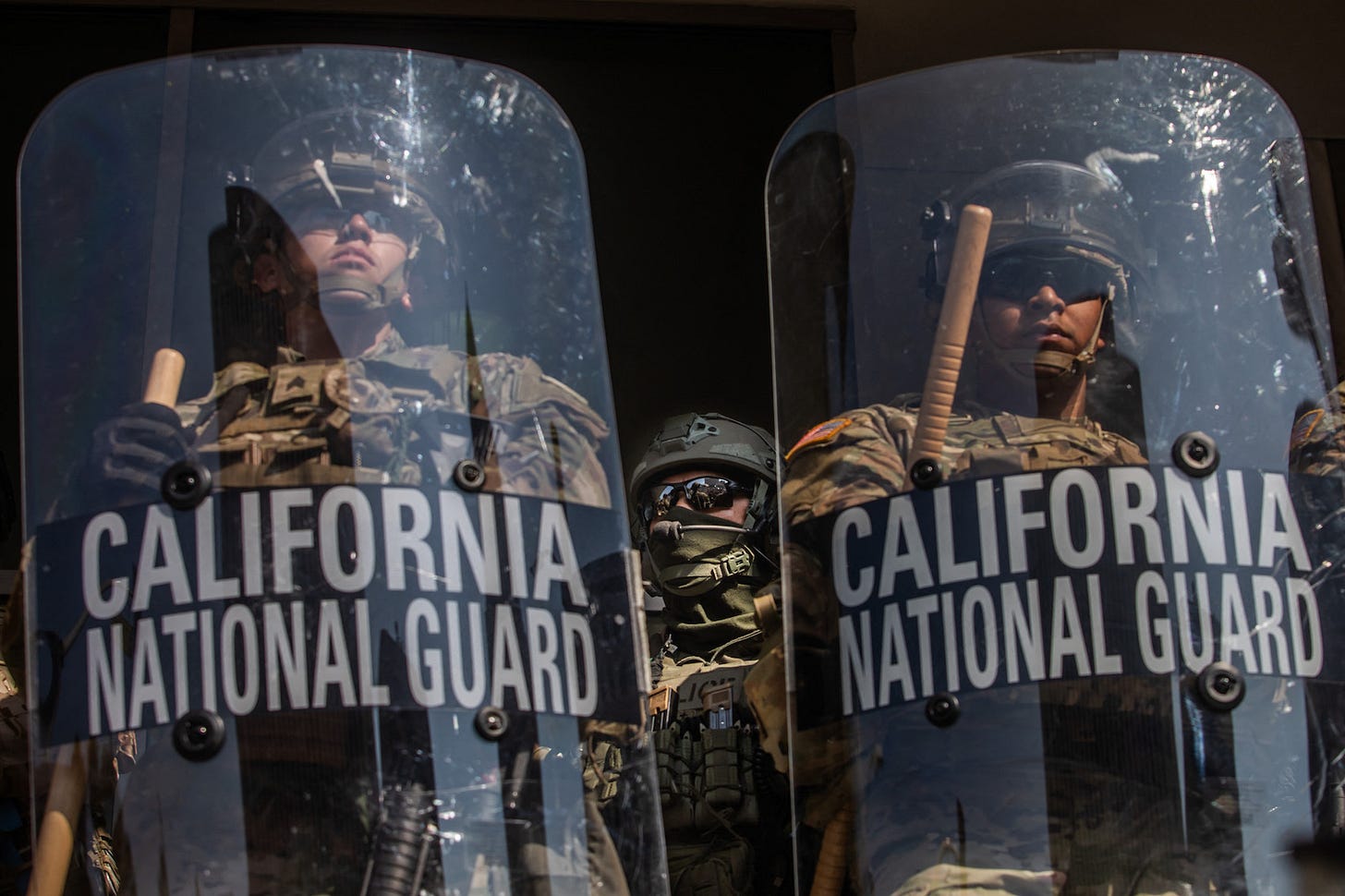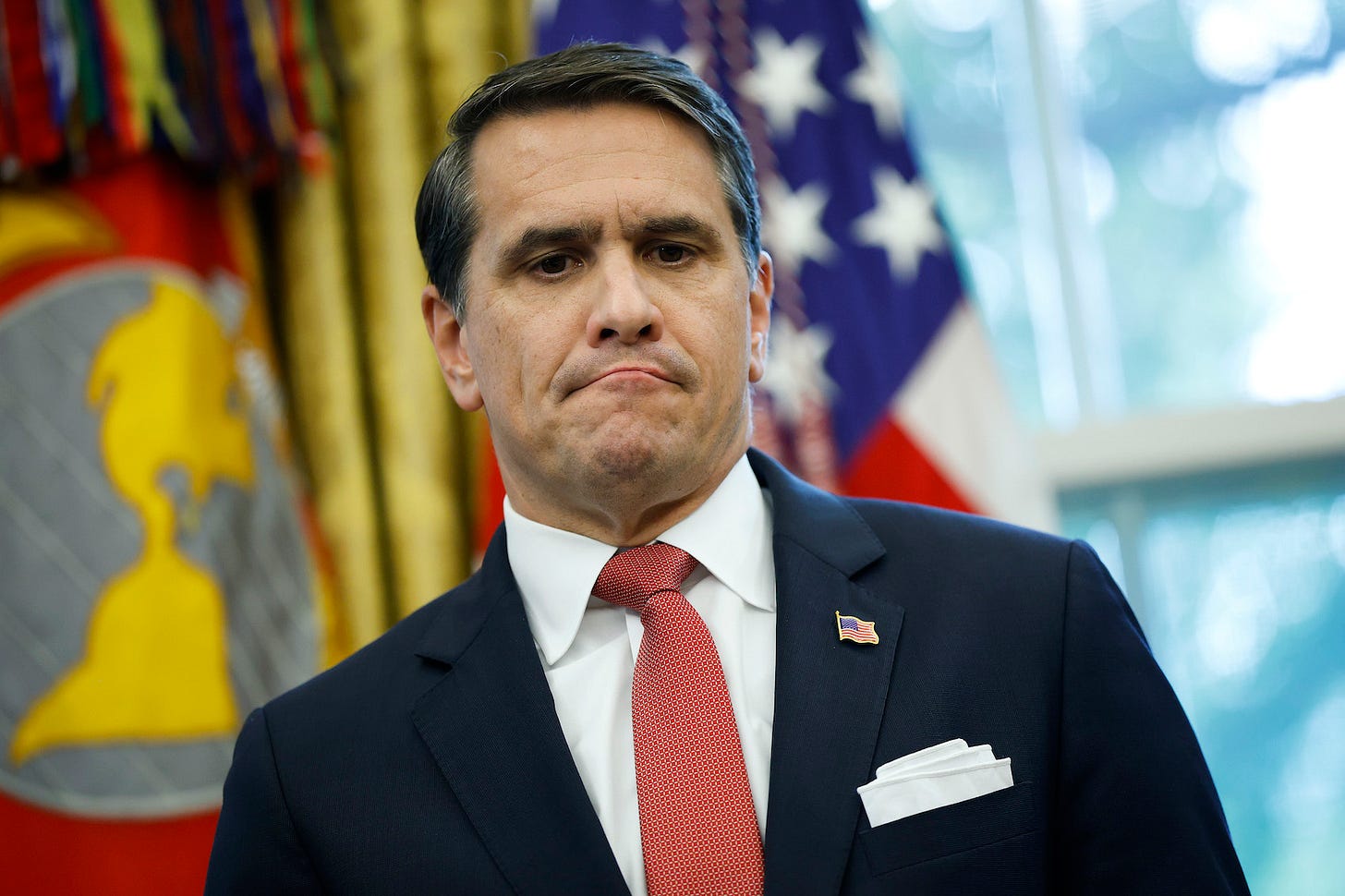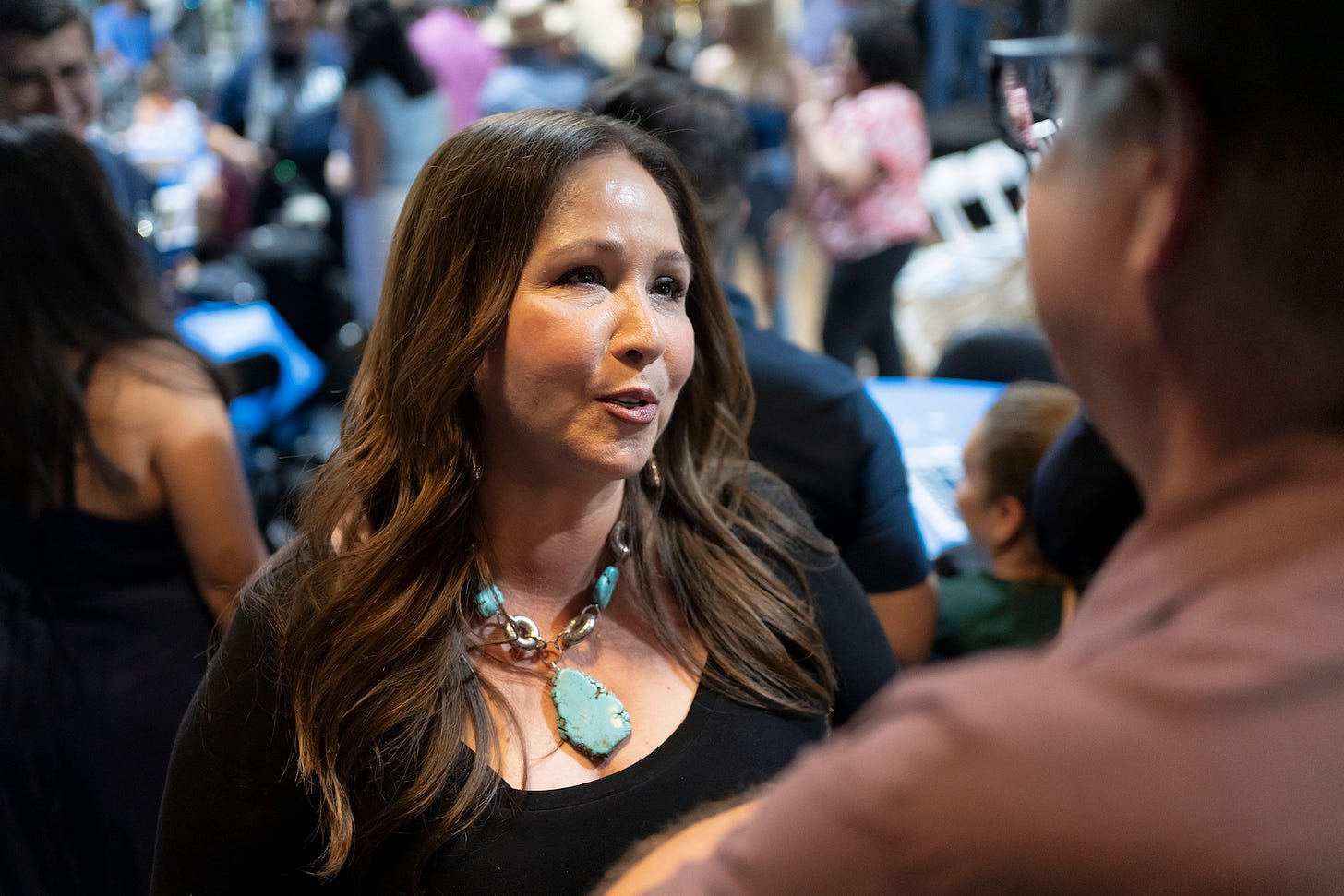Morning brief: "The gravest consequence"
The full Ninth Circuit bench won't interfere with Trump's troops in LA; Kilmar Abrego Garcia wants Todd Blanche on the hot seat, and more
Understand the stories that affect your lives with concision, clarity, and urgency.
The full Ninth Circuit bench will not review an appellate court decision allowing Donald Trump to keep deploying the National Guard in Los Angeles.
Released on Wednesday evening, the decision does not rule out the possibility that the Ninth Circuit could review a separate ruling allowing Trump to deploy troops in Portland, Ore.
It’s rare for federal appellate courts to green light en banc reviews before a case has reached the merits, and the lawsuits challenging Trump’s National Guard activation in California and Oregon are still in their preliminary stages.
But in blistering statements, 11 judges from the Ninth Circuit wrote that the court should have taken immediate action.
“This case presents an issue of the gravest consequence: the peacetime deployment of military troops in American cities,” Senior U.S. District Judge Marsha Berzon wrote on behalf of these judges. “For the first time in the nearly 250-year history of this country, the President claims extraordinary, unilateral powers to order state National Guard troops onto the streets of select cities in response to short-term, hyper-localized, domestic protests of federal policies. This claimed authority clashes directly with the traditional strong resistance of Americans to military intrusion into civil affairs.”
Thousands of people are calling U.S. lawmakers to oppose Trump’s troop deployments.
It was the second most-popular topic on the 5 Calls app last week.
Judge Berzon wrote that a three-judge panel allowed Trump’s Los Angeles troop deployment after a “fairly perfunctory briefing and no knowledge as to what was coming next.”
“What came next was the deployment of American troops to three more American cities—Washington, Portland, and Chicago—over the objections of local authorities, and repeated threats to send National Guard troops to ‘get rid of’ the ‘problems’ in, and ‘clean up’ many more cities—including Baltimore, San Francisco, Oakland, and New York—coupled with rhetoric about the law enforcement situations in those cities that does not square with reality,” she wrote.
If a majority of Ninth Circuit judges had approved en banc review, the case would have been sent to an 11-judge panel under the customs of that jurisdiction. Berzon opined that many of her colleagues may have avoided that step this time because the litigation is in the early stages, but she believed it was wrong of them to wait.
“I continue to think that the President’s disregard for this country’s deep-seated commitment to the principle that armed forces must not be used as civil law enforcers except where there is no alternative should have been headed off now, not later,” she wrote.
In a separate dissent, Judge Ronald Gould echoed his colleague’s remarks and said that Trump’s troop deployments could have deadly consequences.
“To have an armed military face off against civilian protesters, whatever the motivation of the President, threatens to produce another tragedy, such as that occurring at Kent State University in 1970,” he wrote, referring to the massacre of students by the National Guard. “Normalizing the deployment of American troops on American streets at a hint of civil unrest will lead to profound consequences destructive to American society.”
Read the full statement and dissent here, and watch my interview with Brian Tyler Cohen on the subject below.
Todd Blanche on the hot seat?
Kilmar Abrego Garcia has subpoenaed Trump’s former criminal defense lawyer turned Deputy Attorney General Todd Blanche to testify at an upcoming court hearing on whether his case should be dismissed for vindictive prosecution.
The Justice Department plans to try to quash the subpoena, which prosecutors revealed in a filing on Wednesday.
“On October 20, defense counsel subpoenaed the Deputy Attorney General, Associate Deputy Attorney General, and Counselor to the Deputy Attorney General, as well as two HSI agents, to testify at the evidentiary hearing,” Acting U.S. Attorney Robert McGuire wrote in a footnote.
Citing D.C. Circuit precedent, McGuire wrote that “top executive department officials should not, absent extraordinary circumstances, be called to testify regarding their reasons for taking official actions.”
Presiding U.S. District Judge Waverly Crenshaw Jr. already found it “striking” and “telling” that Blanche said in a televised interview that Abrego’s investigation began after a judge “questioned” the government’s decision to expel him from the United States in March.
Abrego’s attorneys accuse the government of “stonewalling” their discovery requests in advance of the two-day evidentiary hearings scheduled for Nov. 4 and 5.
Read the filing here.
Epstein-related litigation
Nearly a month after she won her election, Rep.-elect Adelita Grijalva (D-Ariz.) filed a federal lawsuit to prevent any further delay to her being sworn in to office, and her case has now been assigned to U.S. District Judge Trevor McFadden, a Trump appointee.
Grijalva’s vote would represent the 218th and final signature needed for a discharge petition to force a vote in the House of Representatives compelling the Justice Department to release the Epstein files.
House Speaker Mike Johnson (R-La.) refused to swear in Grijalva, blaming the government shutdown for the impasse.
In a lawsuit brought together with Arizona Attorney General Kris Mayes (D), Grijalva writes: “Speaker Johnson has not identified any valid reason for refusing to promptly seat Ms. Grijalva.”
“Instead, on information and belief, Speaker Johnson wishes to delay seating Ms. Grijalva to prevent her from signing a discharge petition that would force a vote on the release of the Epstein files and/or to strengthen his hand in the ongoing budget and appropriations negotiations,” the 17-page complaint says.
In a statement, Grijalva said that Johnson’s “obstruction has gone far beyond petty partisan politics — it’s an unlawful breach of our Constitution and the democratic process.”
“The voters of Southern Arizona made their choice, yet for four weeks, he has refused to seat a duly elected Member of Congress, denying Southern Arizona its constitutional representation,” she said.
Earlier this year, McFadden found Trump’s White House violated the First Amendment rights of The Associated Press by revoking their media credentials for refusing to go along with the government’s rebranding of the Gulf of Mexico.
In other Epstein-related news, author Michael Wolff sued Melania Trump, claiming she threatened to pursue a $1 billion lawsuit if he didn’t retract Epstein-related statements he made about her.
“These threatened legal actions are designed to create a climate of fear in the nation so that people cannot freely or confidently exercise their First Amendment rights,” Wolff’s lawsuit states. “The threats are also intended to shut down legitimate inquiry into the Epstein matter which the Trumps and their collaborators have at every turn sought to impede and suppress.”
Wolff seeks unspecified damages under New York’s anti-SLAPP law, designed to punish lawsuits that chill free speech.






One might think that those charged with upholding the rule of law would choose to err on the side of caution and restraint in matters that affect the continuation of our constitutional democracy.
Thank you for detailed reporting on all these subjects. It’s hard to keep up but I feel much more secure in my knowledge after reading your updates. I sure hope the ninth circuit gets a freaking clue and I’m glad some are fighting the choices their colleagues are making. I cannot understand why they are so clueless to the immediate danger. Ugh.